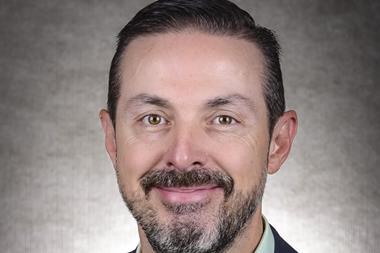It is an everyday dilemma that all honest business people hope will never happen to them. Someone in a position of power in an organisation that their company does business with takes them for a quiet drink and asks for a backhander. Perhaps the request comes from someone who exercises control over a big contract. The future jobs of half the workforce could rest on the successful outcome.
It becomes clear that the customer is not playing games. He wants tens, even hundreds of thousands of pounds and suggests when, where and how he would like to be paid. What should employees do?
The answer, in black and white terms, is that they must stick to ethical principles. Obtaining money through deception is a crime, and facilitating it makes them an accessory to crime.
The problem is that in some business sectors and overseas territories these standards and values simply do not apply. What is considered exceptional in UK business as a whole and in many developed western countries, may be normal elsewhere. In some parts of industry and in many parts of the globe, illicit 'commissions' and elaborate 'gifts' are an intrinsic part of the business and political scene.
I have known cases where expensive cars, watches, houses, boats and even funds to cover the cost of a divorce were quoted as the price of getting a smooth ride to contractual completion. When this happens, it is honest people with no experience of these matters who find it difficult to deal with the situation they find themselves in. They know that if they get it wrong the contract, their own career, or even their business, is probably on the line. But if they succumb they are acting illegally and risk having to face the consequences.
Trying to share the problem with associates or colleagues is fraught with risks, too. Trust can soon evaporate into a cloud of suspicion that is difficult or impossible to disperse. Superiors have been known to advise middle-managers "Don't bring me problems - bring me solutions," rather than risk being implicated in the mess.
One answer is to seek help from someone within your company with a known talent for fixing such problems; someone with a suitably phlegmatic and worldly approach. Perhaps he can talk face-to-face with someone at the highest level in the opposing camp and blow the whistle on the fraudster?
Unfortunately, there is no certainty that this will either salvage the contract or cause the offending head to roll. Business life is not always that simple. The personal shortcomings of financially productive people are sometimes conveniently overlooked, especially in countries where able managers are hard and expensive to find. There may be bigger fish to fry, or a different agenda.
A complex problem
Bribery is a very complex problem with significant legal, ethical and social implications, not to mention the probability of awkward taxation or money laundering questions being raised. To make matters worse, in some parts of the world senior managers receive relatively poor pay on the explicit understanding that they will normally receive 'consultancy fees' from suppliers, usually paid into an off-shore trust or untraceable off-shore bank account.
The entire history of trade and commerce is littered with mechanisms to 'express gratitude' to those who have advanced the interests of a supplier.
At a legitimate level there are agency fees and sales commissions, percentages and bonuses (not to mention gifts, entertainment and less tangible forms of corporate largesse), but, when the recipient is clearly in the customer's employ, 'gratitude' reads as 'bribe' to most western eyes.
In conventional business terms, corruption undermines the cornerstones of prosperity. When the purchaser happens to be an officer of a government or state institution, deriving an illicit pecuniary advantage from the awarding of contracts strikes a blow at the very foundations of democracy, fairness and social responsibility. But finding a continuous stream of orders to optimise assets and occupy a large, expensively trained workforce and satisfy shareholders in a competitive world involves heavy responsibilities, too.
The bigger the sums involved, the more complex the issues become. Even the most honourable, hardworking and principled business people may have second thoughts when the contract in question has a string of noughts on the bottom line. An additional margin may have been built into the original price structure to cover 'unforeseen contingencies', so no real damage would result from the additional 'expenditure'.
In the home market, it is not unknown for influential buyers to have businesses, often run by their relatives, which exist solely to receive favours in the form of seemingly legitimate sales transactions. The difficulty is that such 'fronts' never compete fairly, but provide over-priced supplies, thus masking what are, in fact, corrupt transactions.
There are scores of such dodges, ranging from free holidays at the boss's luxurious Marbella retreat to bars of gold bullion mysteriously finding their way into Swiss banks.
People who stumble at the ethical crossroads can be split into two camps.
The majority are well-intentioned, but slightly na've owner-managers or executives who are driven by the wish to see their business or career flourish - but who lack the moral rectitude to resist the rewards of a seemingly victimless white-collar crime. They are the ones most likely to get caught.
Then there are the 'doers', whose ambition and greed has defined their ethical stance. For them, corruption is just one of the ways things gets done in a tough world. They have learnt how to be suspicious and cunning - and to cover their tracks.
In this murky world, he who hesitates is presumed to be a soft touch.
Vacillation is construed as acquiescence. The wheels of corruption begin to turn almost before the unwary realise they are trapped. Once this cycle has begun it is doubly difficult to reverse it.
With careers, livelihood, a contract or even the survival of a business in the balance, the most vigorous legal defence is appropriate.In Britain, at least, you are innocent of bribery and corruption until you have been found guilty in a court of law.
Those who want to climb the ladder of success will almost certainly reach an ethical crossroads at some point in their career, so decide your company's philosophy well in advance and prepare your response.
- Martin Cunningham is a criminal defence lawyer, Martin Cunningham Solicitors, Tel: 0161 456 5857.



















